Iranian Officials Refuse To Disclose Size Of Raisi's UN Delegation
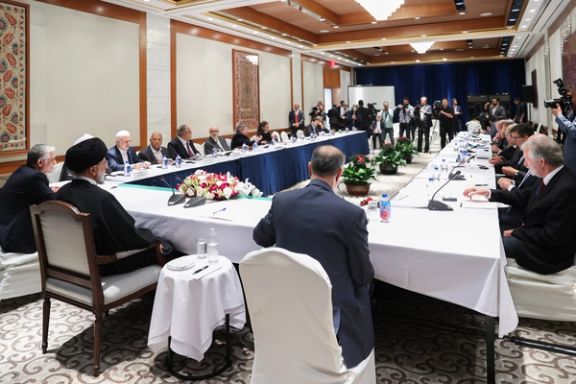
Iranian officials visiting the United States for the UN General Assembly have declined to disclose the size of President Ebrahim Raisi's accompanying delegation.

Iranian officials visiting the United States for the UN General Assembly have declined to disclose the size of President Ebrahim Raisi's accompanying delegation.
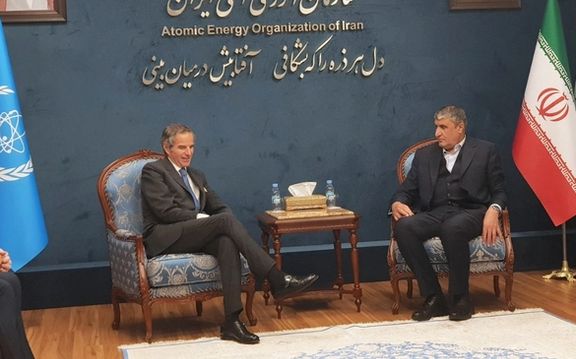
Following Iran's move to bar IAEA inspectors from monitoring its nuclear activities, a hardliner close to the Supreme Leader has once again called for leaving the NPT.
Earlier on Monday, the US and E3 (The United Kingdom, France and Germany) issued a statement condemning Iran's move a few days after the IAEA announced that Iran has withdrawn the designation of several UN inspectors assigned to conduct verification activities in Iran under the Non-Proliferation Treaty Safeguards Agreement.
According to conservative website Alef in Tehran, Hossein Shariatmadari, the editor of the Kayhan daily which is funded by Khamenei's office, wrote: "The United States has currently under no obligation about the JCPOA. At the same time, Europe has neither acknowledged nor fulfilled any one of its commitments under the nuclear deal. It is only Iran that has made so many concessions and brought its nuclear facilities on the brink of destruction despite enduring decades of economic and political pressure and is also expected to accept further commitments if it continues its presence in the JCPOA."
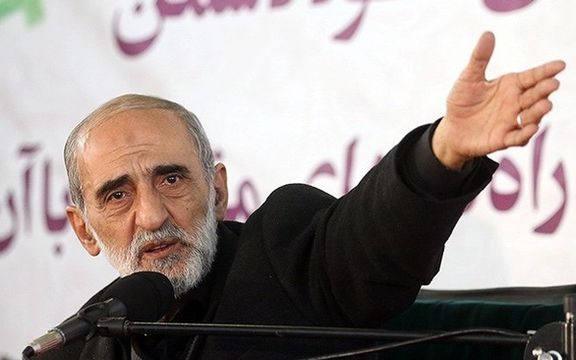
Shariatmadari further claimed that "the Raisi administration has heroically resisted against powerful countries and the United States' arrogance and has even humiliated them at times." He referred to the recent comments by the Iranian foreign minister in which he said, "Iran will not leave any hostile act by the United States without a response."
He added that "Iran's presence in the NPT is detrimental to Iran and provides an opportunity to the enemies to blackmail Tehran and hinder its progress." He asked: "Why should Iran remain in the Non-Proliferation Treaty while the United States refuses to fulfil its commitments and China and Russia have no objections to Iran's withdrawal from the treaty?"
Shariatmadari's comments came hours after the US and three European allies condemned Iran’s move to bar IAEA inspectors, considering it another step in the wrong direction. IAEA Director Rafael Grossi characterized Tehran's move as non-constructive, adding that it was not a step in the right direction.
Grossi emphasized that the only way that Iran could dispel any doubts about its nuclear program is to allow the IAEA to inspect, noting that “If they allow us to work, then there will be confidence; otherwise, it will be very complicated.”
Meanwhile, Iranian analyst Ali Bigdeli warned that barring the IAEA inspectors would pave the way for the issuance of a UN Security Council resolution against Iran. He added that Iran's move will not lead to the revival of the JCPOA, as the next meeting of the agency is likely to issue a warning to Iran and send the case to the UN Security Council.
Bigdeli noted that in the previous cases, Iran used to show some flexibility and offer concessions to the IAEA to prevent the issuance of a resolution. Last week, 24 countries that are members of the IAEA in a statement assessed Iran's cooperation with the agency as "insufficient." In response, the Iranian Foreign Ministry branded IAEA experts as "illiterate" and denied that Tehran had refused to cooperate with the UN nuclear watchdog.
Media expectations suggest that President Ebrahim Raisi is likely to face tough questions in New York during the UN General Assembly, as politicians and reporters will certainly ask him about this development and its timing, especially after some of Iran's frozen assets abroad have been released.
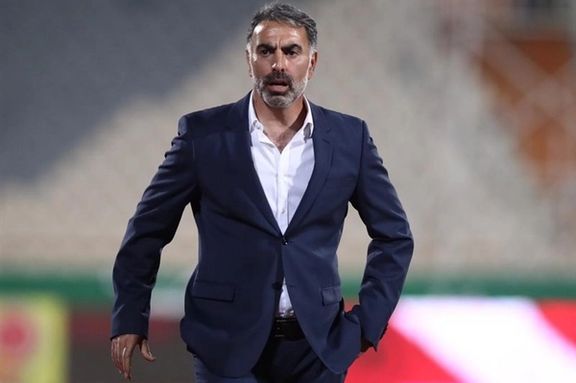
An Iranian football coach has expressed criticism regarding sport censorship in Iran after coverage of a female referee raising the hand of a male wrestler was banned from TV.
Mahmoud Fekri, who serves as the head coach of Havadar football club, voiced his concerns on Tuesday, noting the scene's ban from state TV.
The incident occurred at the Belgrade Wrestling World Championships, during which a female referee raised the hand of Iranian wrestler Hassan Yazdani.
Iran's state TV is tightly controlled by the office of Iran's authoritarian leader, Ali Khamenei, and has been experiencing a decline in viewership due to its extensive religious programming and heavy-handed censorship of news. Critics argue that it serves primarily as a propaganda tool, benefiting from significant government subsidies without any accountability.
Athletes have come under fire in the last year for supporting protests. Those who have spoken out have undergone social media bans, bank account freezes and even pay cuts. Those who have competed without hijab on the world stage have either been forced into exile or arrested and dealt severe legal consequences.
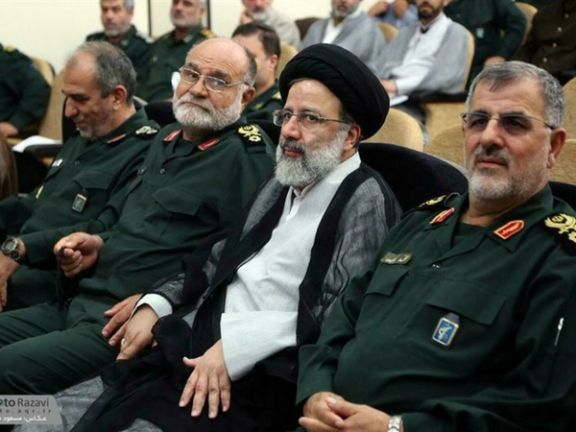
The Council on Foreign relations has changed an earlier announcement of cancelling a meeting with Iranian President Ebrahim Raisi in New York, and re-scheduled it to Wednesday.
Iran International’s correspondent Arash Alaei earlier reported from outside the CFR offices in New York City that representatives of the organization told reporters gathered there that a private meeting with Raisi and invited guests had been canceled.
However, later in the day, CFR said that the meeting will take place on Wednesday at the request of the Iranian team, at Raisi's hotel, the Hilton Millennium at UN Plaza, at 11 am. The hotel is located at a cordoned-off area, as protest gatherings had been planned outside the original venue, the CFR building.
On September 9, Roya Hakakian, a CFR member and an Iranian-born writer and activist revealed that she had received an invitation to attend the meeting but had declined. In her response to CFR, she cited that the Iranian president stands accused of serious human rights violations, particularly having been a member of a secret “death commission” that ordered the killing of up to 5,000 political prisoners in 1988.
“Dialogue is reserved for those with whom we have disagreements. For criminals like Raisi, the only venue for conversation must be a court of law,” Hakakian wrote to CFR.
But Hakakian and many other Iranian Americans were furious not just for Raisi’s culpability in one crime in 1988, but also for his role and responsibility as President during the Women, Life, Freedom protests that rocked Iran after Mahsa Amini’s death in hijab police custody last year.
Another prominent Iranian dissident figure, Nazanin Boniadi, also posted on X Tuesday that she was also invited but declined.
“Democratic institutions hold the key to tipping the balance of power in favor of those risking everything for freedom. If you afford your members the opportunity to meet dictators behind closed doors, then at least offer them the chance to also hear from their opponents in the open,” she said in her post.
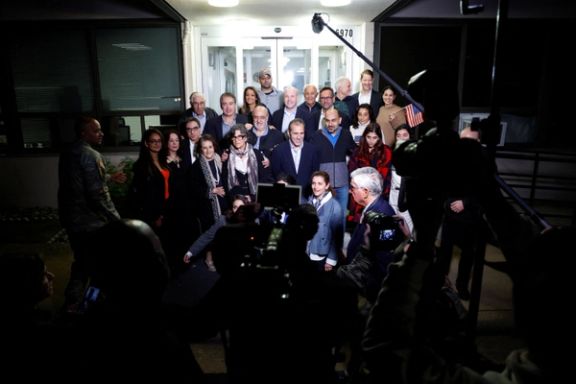
Five Americans held hostage in Iran arrived in the United States Tuesday, one day after $6 billion in frozen Iranian oil revenues was transferred to banks in Qatar.
They made an emotional return, ending their imprisonment "nightmare", after being arrested, falsely accused of espionage and convicted in sham trials without due process of law.
Coming off the plane, the returning Americans were embraced by family and friends with smiles, laughs, and visible emotion, video footage from the airport showed. One of the returnees briefly waved a small Stars and Stripes handed to him.
"The nightmare is finally over," said Babak Namazi, speaking with his arm around his returning brother Siamak at Fort Belvoir, Virginia.
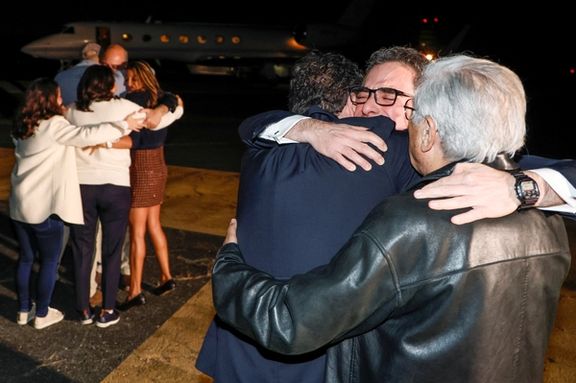
As part of the deal, five Iranians charged or convicted of non-violent crimes were also freed by the US. Only two of the five chose to return to Iran and were handed to the Iranian officials in Doha airport when the five Americans landed there.
Siamak Namazi, one of the freed Americans, issued a statement immediately after leaving Iran, in which he praised President Biden and his administration for making ‘incredibly difficult decisions’ to secure his release.
“Thank you... for ultimately putting the lives of American citizens above politics,” Namazi said in his statement.
Not everyone was so thankful, however.
Gazelle Sharmahd, whose father Jimmy, another American, was kidnapped and is on death row in Iran, issued a press release almost at the same time as Namazi.
“How does it make sense to leave hostages behind,” Sharmahd writes, “especially the only US hostage who does not hold an Iranian passport, who did not travel to Iran but was kidnapped, who was NOT sympathetic to the hostage takers…”
Addressing President Biden, she continued, “instead of wasting your time on national TV trying to convince us that our hostage takers will use the money for humanitarian reasons, explain to us how and when will you bring Jimmy Sharmahd back home to us?”
The Biden administration came under attack also from many prominent Republicans in the Capitol.
Michael McCaul, Chairman of the House Foreign Relations Committee, slammed those who have negotiated the prisoner swap on Fox News: “They are so naive... It was a hostage swap for $6 billion... It's going to go into terror proxy operations, it's going to go into building their nuclear...offensive system for a nuclear war."
Republican congressman Mike Turner was another vocal critic of the deal. Appearing on CBS, he warned of the future risks involved. “Whenever you put a price on American heads, you get an incentive for people to take more hostages.”
The exchange at the Doha airport –reminiscent of Cold-War exchanges between the US and the Soviet Union– was timed to perfection for the Islamic Republic. The hostages left Iran immediately after the anniversary of the killing of Mahsa Amini, and just as Raisi arrived in New York for the UN General Assembly.
The plight of the freed Americans is now bound to dominate airtime, diverting attention from Raisi and his regime’s brutal crackdown of every dissenting voice.
“I'm heading to New York… to tell the world not to legitimize murderous dictators like Iranian president Ebrahim Raisi,” wrote Hillel Neuer, an international human rights lawyer and the executive director of United Nations Watch.
Raisi was a member of the infamous Death Committee which oversaw summary execution of at least two thousand Iranian political prisoners in 1988.
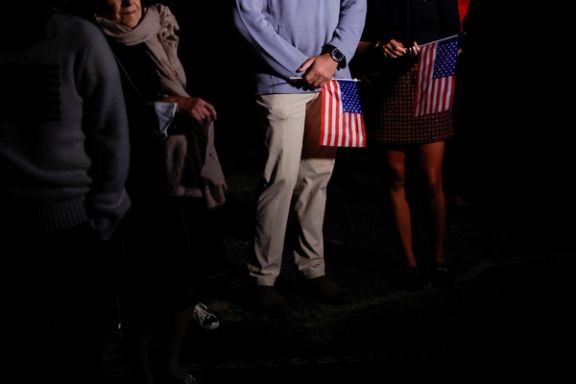
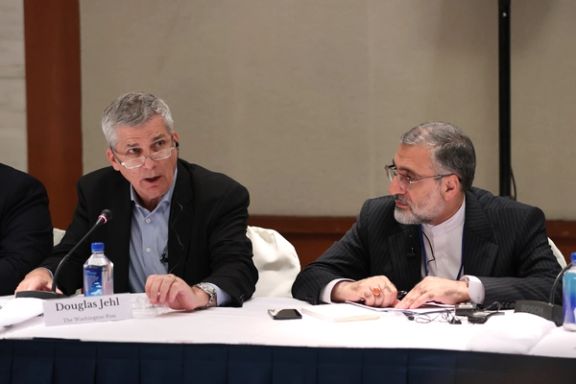
The chief of staff of Iran's president, under sanctions from both the US and EU, is accompanying the hardline President on his second consecutive trip to New York.
Gholam-Hossein Esmaili’s initial blacklisting in 2011 stemmed from his role as the head of Iran's prisons organization, where he faced accusations of "serious human rights violations."
He is under sanctions due to his involvement in the widespread detention of political protesters and his role in concealing abuses within the prison system.
Esmaili served as the spokesperson for the Judiciary of the Islamic Republic from 2019 to 2021 and held the position of Tehran Province's chief justice from April 2014 to August 2019. On August 8, 2021, he was appointed as chief of staff of Iran's president.
President Ebrahim Raisi, who is himself on the US and European sanctions lists, is currently in the US to attend the UN Assembly, a move met with global criticism in light of the country's recent crackdowns.
Prior to assuming the presidency in August 2021, Raisi served as Iran's Judiciary chief. However, his extensive career within the Islamic judiciary has drawn criticism from human rights organizations, accusing him of significant human rights violations.
He was a member of a death committee responsible for ordering the execution of thousands of political prisoners in 1988, which he openly acknowledges.
Iran typically keeps the size of its presidential delegation for UN General Assembly visits secret, with previous trips having brought controversy when it was revealed that family members accompanied the president's delegation.
During the current UN General Assembly session, delegation members refused to answer Iran International's correspondent, Arash Aalaei's questions on the makeup of the delegation, instead pushing away the camera and insulting Aalaei.
Last year, when Raisi and his extensive entourage departed from the United States, they did so with a substantial amount of goods, in spite of ordinary Iranians struggling to make ends meet amid a 50-percent annual inflation rate.
On a separate occasion, Iran International correspondent Maryam Rahmati confronted Raisi before a meeting in New York on Tuesday, asking, "Mr. Raisi, are you aware that 520 people have been killed on the streets of Iran since the death of Mahsa Amini? Have you inquired with the security forces about the reasons behind these street killings?" However, Raisi remained silent and did not provide a response.
Raisi arrived in New York on September 18 to participate in the 78th UN General Assembly. Alongside his trip, a prisoner exchange took place between Iran and the United States.






